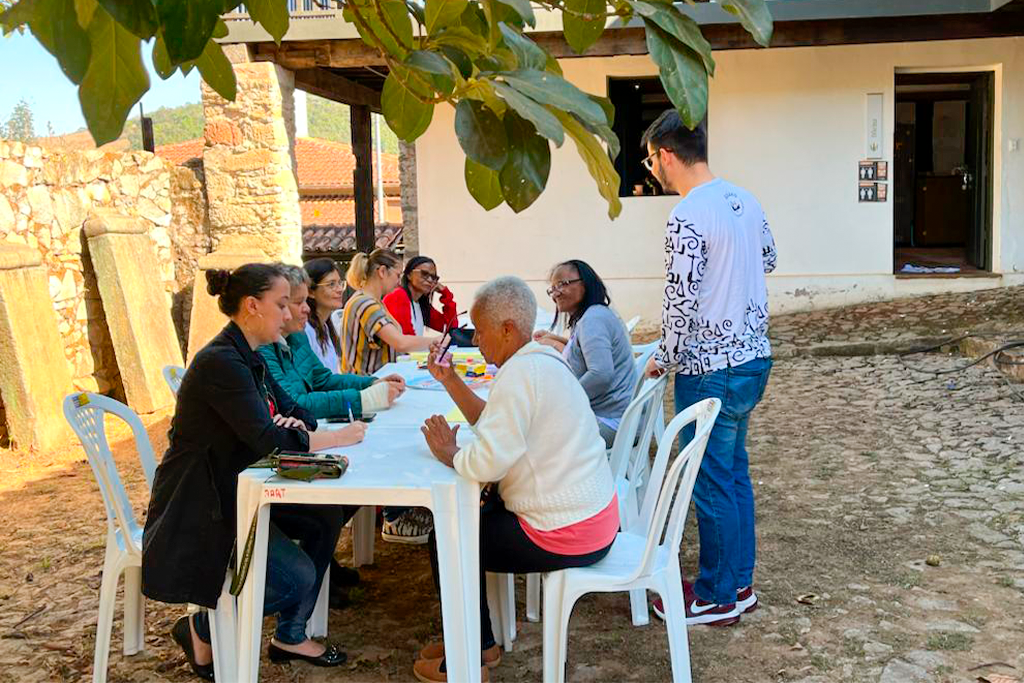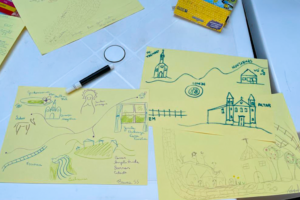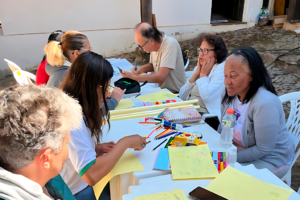
Much used in recent years, the idea of Affective Heritage has come to the forefront with increasing frequency — a kind of response to the gaps in thinking about tangible and intangible cultural heritage. The concept was created as a response to the representativeness of this cultural heritage for the community that circulates it. In other words, not just thinking of the imposing colonial buildings as a representation of a city, or some religious manifestation, but how the people of these places react and connect, positively or not, with these assets.
Affective Heritage’s interface is between preserving the past and building a sustainable future, taking private and collective perceptions into account. In this context, the concept plays a diverse role, involving objects ranging from letters aged by time, and cultural artifacts passed down through the generations, to a community’s perception of its natural landscape.
These items not only carry stories, memories, and values but also serve as a link between generations, promoting a deeper understanding of individuals and their territories. In addition, Affective Heritage encompasses places rooted in our emotional memory that has historical, cultural, and natural significance; they serve as identity landmarks for communities.
Keeping the memory and history of a people alive
Preserving these places is not just a matter of historical conservation, but also a source of awareness and inspiration for sustainable practices, strengthening the connection between people and the environment. Sharing these stories, values, and places from our Affective Heritage can also inspire actions for economic development, ensuring that the next generations can appreciate emotional and cultural connections that are significant today, using them to produce new income networks.
According to Olender (2017), affectiveness in Heritage can be mapped from the inclusion of the term in listing processes in Brazil, as research for records, to the process of meaning and re-signification of spaces. However, the author points out that even though the affective value is fundamental to understanding the importance of a property for a social group, it often serves as an argument for the disqualification of the property by public authorities. In other words, there is still a need for work to guide the intangible relationship.
Affections can be individual or collective, but even those considered individual are affections for or towards someone or something. They involve a certain experience that is somehow realized in a collective dimension (OLENDER, 2017, p. 339).
It can therefore be perceived how important the preservation of Affective Heritage is for building a community’s cultural identity, as it helps to keep the memory and history of a people alive; as well as helping to strengthen social ties and develop a collective awareness of the importance of preserving cultural heritage.
Opening doors to effective change
Olender emphasizes that “affective value is what I consider to be the main social indicator of the historical and cultural relevance of an asset for its community” (2017, p. 324). Therefore, the concept is not limited to sentimentality, but as a dynamic tool to promote awareness, recognition, and socio-economic development.
 Mapping a community’s Affective Heritage makes it possible to build a future in which respect for the historical, social, economic, and environmental is incorporated into everyday practices. After all, it is the potential for individual recognition that reflects on the collective, the reaffirmation of a community in its place in history.
Mapping a community’s Affective Heritage makes it possible to build a future in which respect for the historical, social, economic, and environmental is incorporated into everyday practices. After all, it is the potential for individual recognition that reflects on the collective, the reaffirmation of a community in its place in history.
Thus, in this convergence between the past and the future, we find sources of inspiration and responsibility for shaping a more balanced and sustainable world. Recognizing a community’s affection for its heritage opens the door to effective change and to what safeguarding means.
By André Vaz


